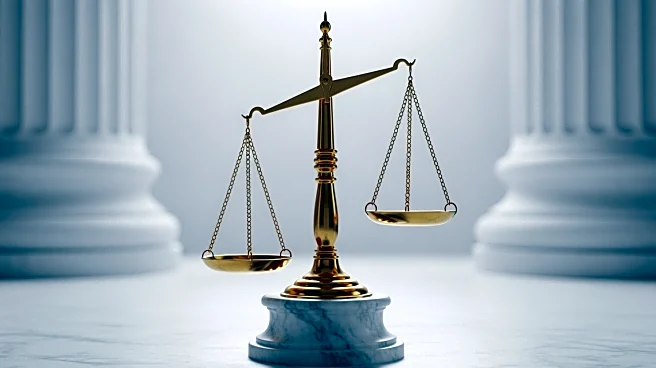What's Happening?
Supreme Court Justice Neil Gorsuch expressed concerns over the extent of presidential power during a hearing on President Trump's tariffs. Gorsuch, appointed by Trump, challenged the broad authority claimed
by the administration under the International Emergency Economic Powers Act (IEEPA), a law that allows the president to address national emergencies with tariffs. Solicitor General D. John Sauer defended the administration's stance, but Gorsuch warned of a shift in power from Congress to the executive branch. The hearing highlighted the potential for future presidents to declare emergencies on various issues, such as climate change, and impose tariffs, raising questions about unchecked executive authority.
Why It's Important?
The case underscores the ongoing debate about the balance of power between the executive branch and Congress. The Supreme Court's decision could impact how future presidents use emergency powers, potentially affecting U.S. foreign policy and economic strategies. A ruling in favor of the administration might embolden future presidents to use IEEPA for broader purposes, while a decision against could limit executive power, reinforcing congressional oversight. This case is significant given the court's conservative majority, which has previously supported Trump's policies.
What's Next?
The Supreme Court has yet to issue a ruling, which will determine the scope of presidential power under IEEPA. The decision could set a precedent for how emergency powers are interpreted and used by future administrations. Stakeholders, including lawmakers and policy experts, are closely watching the case, as it may influence legislative efforts to redefine or restrict executive authority in national emergencies.
Beyond the Headlines
The case raises ethical and legal questions about the concentration of power in the executive branch. It could lead to discussions on the need for checks and balances to prevent potential abuses of power. The outcome may also prompt legislative action to clarify or amend IEEPA, ensuring it aligns with democratic principles and accountability.










